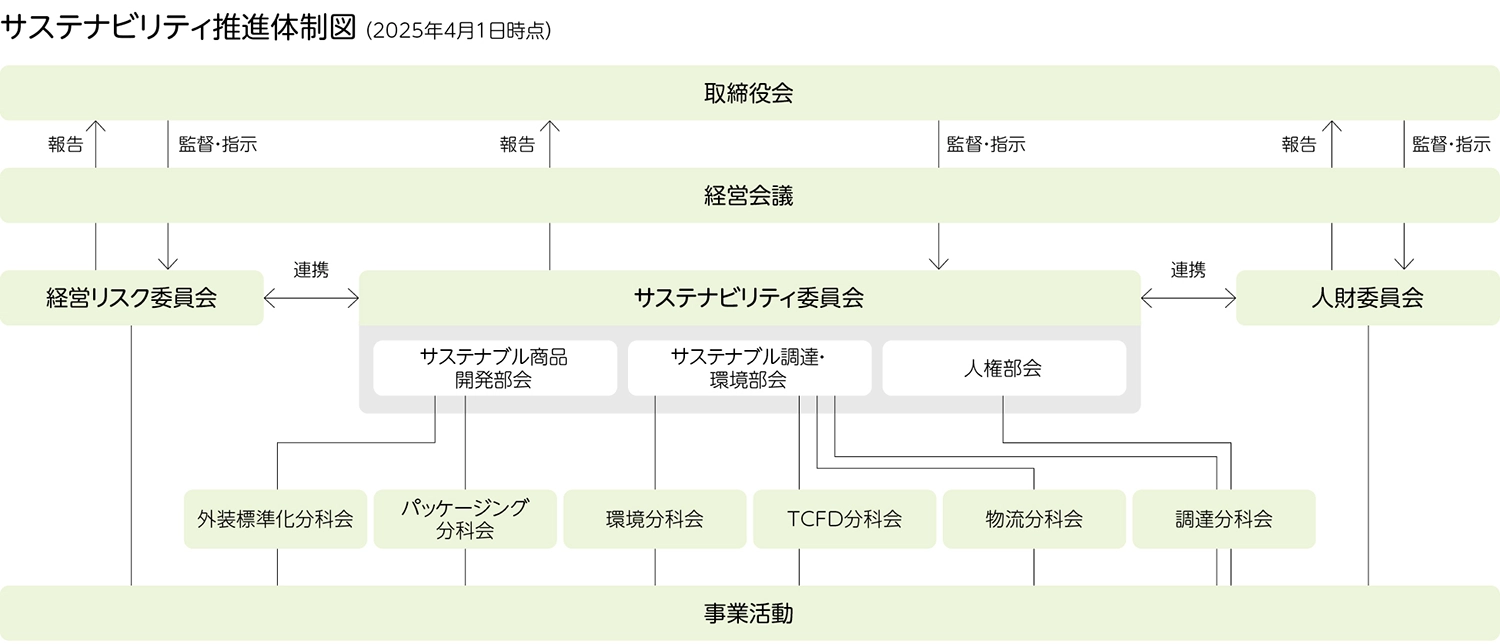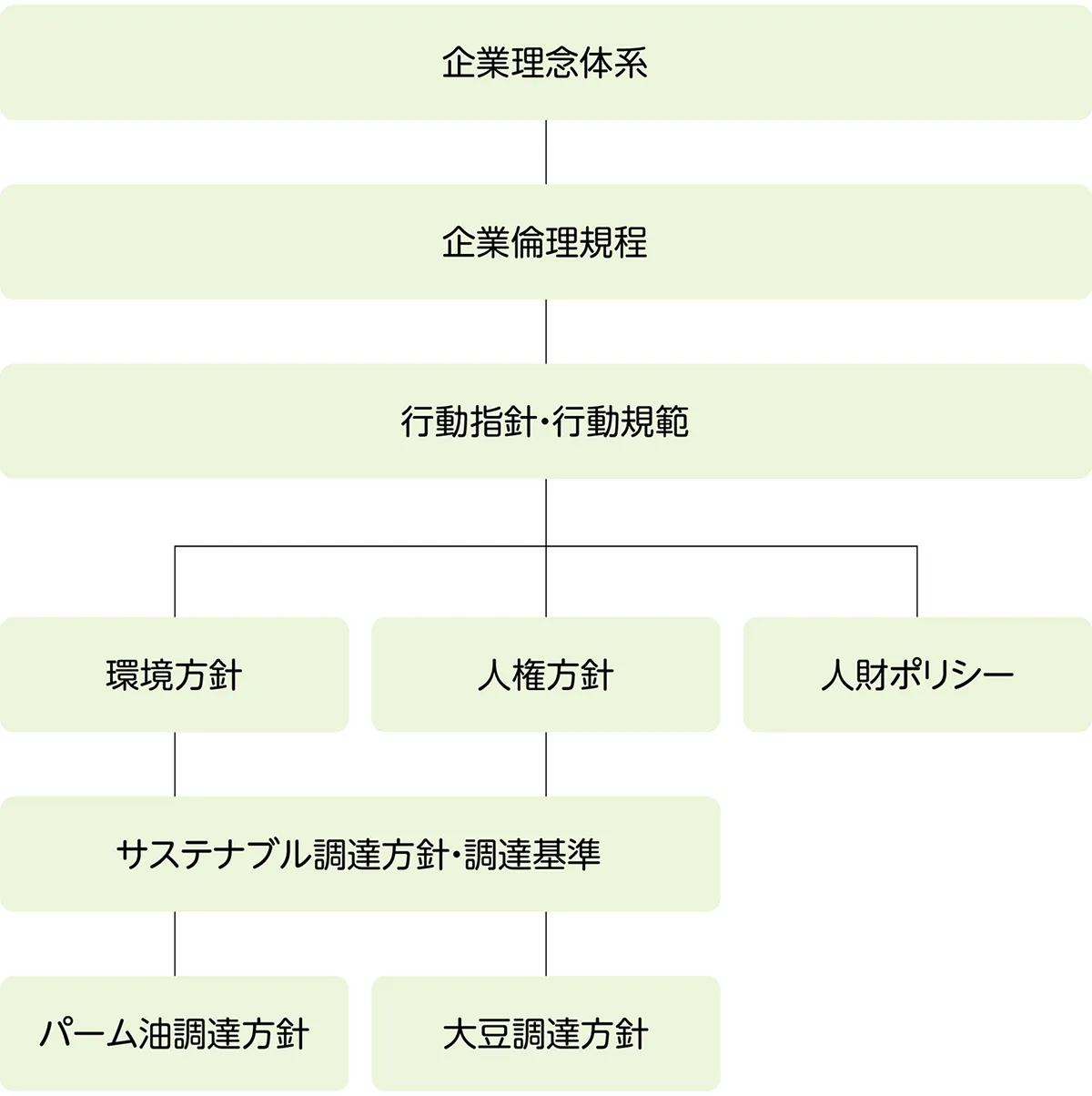Sustainability Promotion Structure
推進体制図
J-Oil Mills regards ESG as an evaluation indicator of corporate value and has established a Sustainability Committee as the foundation of an internal structure for proactively promoting ESG management and sustainability initiatives linked to the company's long-term strategy and growth investments.
This committee is composed of three subcommittees: "Sustainable Product Development Subcommittee," "Sustainable Procurement and Environment Subcommittee," and "Human Rights Subcommittee," and six subcommittees are set up under the subcommittees. Each subcommittee and subcommittee is assigned an executive officer as the person responsible for managing it, and under their leadership, they work on formulating plans and implementing specific measures. The Sustainability Committee organically connects the activities of each subcommittee and manages progress on a quarterly basis, while also reporting to the Executive Committee and the Board of Directors.
Going forward, we will continue to disseminate information about the efforts of this committee both inside and outside the company, and through stakeholder engagement, strive to improve our corporate value by solving social issues.

Sustainability Committee
member
Chair: Executive Vice President and CTO
Vice Chairman: Managing Executive Officer and CCO
Committee members: Executive officers in charge of each committee and subcommittee, internal and external auditors (observers), secretariat, etc.
role
Addressing sustainability issues, reporting to management meetings and the board of directors
held
4 times a year
Main agenda items
- Reducing environmental impact, sustainable procurement that takes human rights and the environment into consideration, product and packaging development, strengthening supply chain management, human rights issues, etc.
- Invite external experts to hold study sessions on social issues related to sustainability from a long-term, multi-stakeholder perspective, and exchange opinions with committee members about our company's initiatives
Sustainability Committee Initiatives
| classification | Main themes and activity goals | Materiality | |||
|---|---|---|---|---|---|
| Realizing a Sustainable Society through Stable Food Supply | Contributing to the Well-Being of All through Food Safety and Security | Respect for diversity and improving employee job satisfaction | Strengthening corporate governance | ||
| Environment |
|
● | |||
|
● | ||||
|
● | ||||
|
● | ● | |||
|
● | ● | |||
| Procurement |
|
● | |||
|
● | ||||
| Product Development |
|
● | ● | ||
|
● | ● | |||
| human rights |
|
● | ● | ||
|
● | ● | |||
Sustainability-related policies
As a guideline for promoting sustainability, we have established various sustainability-related policies based on relevant laws, regulations, international norms, etc.
The contents of the policy are reviewed as necessary depending on social conditions, etc.

education
In order to promote sustainability throughout the Group, we regularly conduct sustainability training for employees (including executives, temporary workers, contract employees, and part-time employees).
Going forward, we will continue to work to deepen understanding and promote sustainability throughout the company.
2024 Implementation Details
| the purpose | Deepen your knowledge and understanding of sustainability issues by considering ESG as an indicator of corporate value. |
| Details of the project | Introduction to J-Oil Mills' sustainability initiatives, basic knowledge of SDGs |
| format | E-learning |
| Languages spoken | Japanese and English |
| Target Audience | All employees working for our Group (including executives, temporary employees, contract employees, and part-time employees) |
| Attendance rate | 95% |
